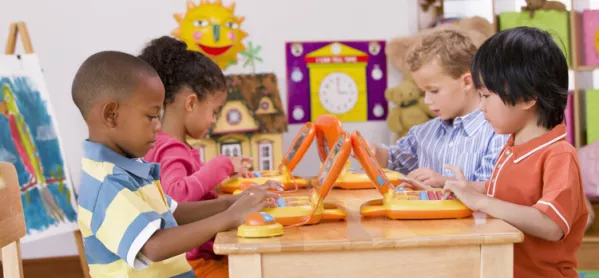There is clear evidence of a pandemic of mental ill health affecting children in childhood and adolescence. The children’s mental health charity Place2Be has found that one in 10 children aged between five and 16 (three in every classroom) has a mental health problem, and many of these problems persist into adulthood. Half of those with lifetime mental health problems first experienced symptoms by the age of 14, and among teenagers, rates of depression and anxiety have increased by 70 per cent in the past 25 years.
We will be sorry to see the government’s mental health champion, Natasha Devon, leaving her role. Devon has rightly been outspoken about what she sees as the “increasingly competitive, fraught and test-driven nature of education” which has had a detrimental effect on the mental health of children.
There are welcome signs that the government is listening and beginning to think differently about assessment. The prime minister, for example, is increasingly talking about the importance of “life chances” in a way that encourages a much broader view of how the education system and society generally can meet the needs of all young people and prepare them for adulthood.
At Early Excellence, we have always focused on what really matters to children - their long-term development. The reason our approach to baseline assessment was so popular with schools across the country was our use of observations rather than formal testing, and our emphasis that wellbeing and mental health matter just as much as literacy and numeracy.
‘Seeing the whole child’
For us, it is always about seeing the whole child, and these pedagogical approaches run through everything we do.
Children are powerful and competent learners, who learn best when they are in an environment that connects with their interests, and with adults who value their ideas and engage with their thinking. As the Department for Education begins the process of drawing up the new on-entry assessment that will be introduced from 2017, we would encourage officials to listen to the views of headteachers and practitioners, and ensure that recognition and support for wellbeing is firmly on the agenda of every school.
Better understanding of the internationally renowned Leuven scales for wellbeing within schools would be a good starting point. We embedded these within our approach to baseline and continue to encourage schools to use these scales to measure and assess wellbeing to help make sure that no child slips through the net. At Early Excellence, we would go further and suggest that wellbeing and good mental health should be seen as equally as important as academic success.
This will require changes to the way parents are encouraged to view success. The government’s focus on testing and literacy and numeracy influences parents to value these outcomes more than other parts of a child’s development, including their emotional wellbeing. This needs to be flipped around. Without good emotional wellbeing, it is extremely difficult to achieve and utilise academic outcomes.
A coalition of parents has recently launched a petition calling for schoolchildren’s emotional wellbeing to be monitored by schools. This would be a good initiative for the prime minister to encourage as part of the Life Chances strategy and he should know that he will have the support of Early Excellence and teachers all across the country if he puts wellbeing and mental health at the heart of developing a long-term approach to boosting the life chances of all children.
Jan Dubiel is national development manager at Early Excellence Centre for Inspirational Learning
Want to keep up with the latest education news and opinion? Follow TES on Twitter and like TES on Facebook




